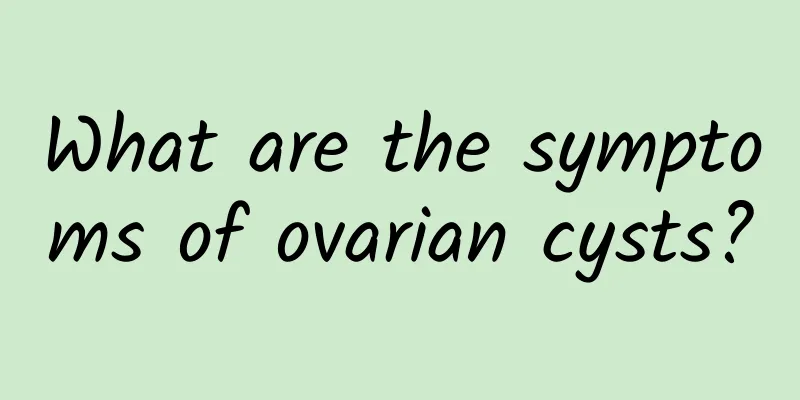What are the symptoms of ovarian cysts?

|
What are the symptoms of ovarian cysts? 1. After the occurrence of ovarian cysts, patients will always show some discomfort, especially in the abdomen. The most common phenomenon in the main complaint is the increase in abdominal circumference and abdominal mass. Patients notice that their clothes or belts are too tight and then notice the increase in abdomen, or they accidentally feel it in the morning and press their abdomen to find a mass in the abdomen, plus abdominal distension and discomfort. 2. Discomfort in the lower abdomen is the initial symptom before the patient touches the lower abdominal mass. Due to the weight of the tumor itself and the influence of intestinal peristalsis and changes in body position, the tumor moves in the pelvic cavity, pulling its pedicle and pelvic funnel ligament, so that the patient has a feeling of distension and falling in the lower abdomen or iliac fossa. If the tumor has no complications, there is very little pain. Therefore, patients with ovarian tumors feel abdominal pain, especially those that occur suddenly, which is mostly caused by the twisting of the tumor pedicle or occasionally by the rupture of the tumor, bleeding or infection. In addition, malignant cysts often cause abdominal pain and leg pain, which often cause patients to seek emergency treatment. 3. Ovarian cysts do not always have obvious symptoms. Women must understand this, especially when the early symptoms are not obvious. Medium-sized tumors often cause abdominal discomfort and a lump that grows upward from one side of the lower abdomen. During a gynecological examination, a spherical lump is touched on one side of the uterus. It is cystic or solid, with a smooth surface and no adhesion to the uterus. The elderly can move freely. Large or huge tumors that fill the pelvis and abdomen may cause compression symptoms, such as frequent urination, constipation, shortness of breath, palpitations, etc. Huge ovarian tumors can cause dyspnea and palpitations due to compression of the diaphragm. Ovarian tumors combined with a large amount of ascites can also cause this symptom. |
<<: The difference between adenomyosis and breast cancer
>>: How to treat menopausal irregular menstruation
Recommend
Ectopic pregnancy may be caused by some mechanical factors
Ectopic pregnancy may be caused by some mechanica...
Ovarian cysts may be caused by environmental factors
The cause of ovarian cysts may be related to envi...
Chloramphenicol in meatballs may be related to low-yield breeding pigs
In response to the discovery of chloramphenicol r...
What causes endometrial tuberculosis?
What is the cause of endometrial tuberculosis? Th...
What are the causes of menstrual disorders?
Considering that menstrual disorders are related ...
What are the common causes of threatened miscarriage?
What are the common causes of threatened abortion...
Will female cervical erosion lead to cervical cancer? The key to treating cervical cancer is to start early
Cervical erosion is an extremely common disease, ...
Can Panax notoginseng cure irregular menstruation?
Panax notoginseng cannot directly cure irregular ...
What is the best surgical method for threatened abortion?
The first three months of pregnancy is a special ...
Can recurrent miscarriage be treated with Chinese medicine?
Physical discomfort symptoms can be treated with ...
What are the examination items for endometrial tuberculosis?
Nowadays, there are more and more diseases that a...
What is the difference in the age of menopause between men and women?
Generally speaking, women will enter menopause be...
Can elevated prolactin cause ovulation bleeding?
High prolactin levels may affect hormone balance ...
Is it better for women to take abortion pills or have an abortion? Women should consider these three points when choosing between medical abortion and surgical abortion.
In the case of an unexpected pregnancy, women wil...
How to deal with pelvic effusion indicated by ultrasound
How to deal with pelvic effusion shown by ultraso...









